Tactics to Attract Gen Z and Gen Alpha to Accounting
By Kathleen Hoffelder, NJCPA Senior Content Editor –
July 27, 2022

With declining accounting program enrollments and a fall-off in the number of new CPAs, accounting professionals and academia are realizing the need to attack the CPA pipeline problem head on. That means, like warriors, they need strategies and plans. Here are some tactics to reach the latest generation in the workforce — Gen Z, born between 1996 and 2010 — and the next, Gen Alpha, born between 2010 and 2024.
Start Early
Introducing the accounting profession as a positive career choice at an early age can help. While, historically, high school or college professors informing students about the accounting field have made significant breakthroughs, some are realizing extra efforts need to be made to reach and connect with these new generations.
Albert J. Campo, CPA, MBA, president of AJC Accounting & Consulting Services, LLC, supports early education on becoming a CPA. “Like the NJCPA, all state societies should be engaging students starting at the high school level, educating them about what the accounting profession is and the multitude of options available to them with an accounting degree,” he said. The NJCPA’s Career Awareness program at the high school level has helped many students not only go into the accounting field but apply for NJCPA scholarships as well.
An introduction to the accounting profession at an even earlier stage, such as middle school or elementary school, could also be what’s needed to pique the interest of these generations. CPAs who are parents of students in these schools could take the initiative on career days and enlighten students about the field of accounting. Learning about a CPA, alongside a fireman or policeman in elementary school, for example, could also help. Teaching resources, such as Applied Educational Systems’ Middle School Career Readiness projects (aeseducation.com/blog/career- exploration-projects-middle-school), can lessen the burden on teachers to describe what accounting is all about and help explain a typical day in the life of an accountant.
Getting the attention of Gen Z at a networking event is also unmatched for both students and the accounting firm or organization looking to hire. Prior to the pandemic, networking was shown to be one of the most successful ways to land a job or make a connection for a future move. Dr. Barry R. Palatnik, Ed.D, MBA, CPA, associate professor of accounting at Stockton University, knows firsthand about the importance of networking. Stockton teamed up with the NJCPA Atlantic/Cape May Chapter in February to host a Zoom call and one-on-one Zoom breakout sessions with students and accounting professionals. The students had such a great time that they asked for more events like this.
Understand Differences
With five generations in the workforce, accounting professionals already have a host of challenges to deal with on a day-to-day basis. Technologically savvy Gen Z professionals may not be able to communicate as well as their Gen X (born 1965 to 1981) coworkers and managers, while the Baby Boomer (born 1946 to 1964) directors and department/firm leaders may not readily embrace change. Every generation has its own ideas about the rewards and any potential frustrations in the accounting profession. As Campo asked, “How can a job that’s viewed as stable and in demand be suffering talent shortages?” He explained, “Part of the reason for the supply issue is that many older practitioners have moved up their retirement exit strategies and others have just left the profession due to burnout from the past two years.”
Both Gen Z and Gen Alpha overlap somewhat in terms of technological aptitude and mobility, but Gen Alphas do have traits of their own. As a McCrindle blog explained, Gen Alpha individuals are more global, digital, social, mobile and visual compared to the previous ones. Gen Z has also been defined as favoring more flexibility and wanting career growth opportunities.
With these traits, it is likely to mean that these individuals put more emphasis on their time away from the office like Gen Zers and may not readily favor long work weeks and anything called a “busy season.” “The individuals in those generations have a different approach than even millennials. They work to live whereas most of the older population in the accounting industry lives to work. That lifestyle needs to change otherwise the talent shortage issue will affect the accounting industry for many years to come,” said Campo.
Gens Z and Alpha are also very “values driven,” reminded Jerry Maginnis, CPA, an executive in residence at Rowan University and author of Advice for a Successful Career in the Accounting Profession: How to Make Your Assets Greatly Exceed Your Liabilities. “The profession has a great story to tell here, given the important role it plays in the capital markets system and broader economy, but it will need to step up its game in making young people aware of the sense of purpose that derives from an accounting career.”
Palatnik acknowledges the time to connect with these generations is now. “As Gen Zs enter the workforce, the accounting profession must be proactive in understanding the needs of this generation and future generations. More importantly, if we are losing young recruits, we must find out why they are leaving firms or the profession. The more we know about Gen Z, the better we will be prepared to support the CPA pipeline.” He added, “accounting firms must make sure they have strategies in place to accommodate Gen Z with offices and have visual displays of honesty and trust with their employees and clients.”
Gens Z and Alpha are also more diverse than other generations. According to Maginnis, such diversity makes it “imperative that the profession does a better job than it has historically in attracting underrepresented minorities.” This, he added, will likely require a change to traditional recruiting approaches. “As the cost of higher education continues to increase, the profession will need to have a stronger presence on community college campuses, particularly if it wants to be successful in accessing this future talent pool.” Getting the message out about the profession to community colleges along with four-year universities has been a priority for the NJCPA in recent years.
And Gen Zers are not just looking for initiatives towards diversity and inclusion — they want to see it embedded in an organization’s culture, said Jessica E. McClain, CPA, CISA, PMP, CITP, CGFM, CFO of the Girl Scouts of Nation’s Capital. “This generation expects organizations to embrace diversity and inclusion. They expect to see leadership accountability and intentional, actionable efforts regarding inclusive work environments. Understand they are skeptical of diversity and inclusion marketing ploys and window dressing.”
Reshape the Image
To say the accounting profession has an image problem is a bit of an understatement. As a 2020 CPA Journal article points out, “Students’ perceptions about the value of a traditional accounting education, and the value of the credential in the marketplace, appear to be in decline.” While the cost to obtain a CPA license and the time involved to fulfill the 150-hour credit requirement weigh on potential candidates for sure, the image problem can and should be able to be addressed. “Old stereotypes run deep,” explains Campo. “To most, CPAs just do taxes, and nothing can be further from the truth. CPAs fill a multitude of roles at both public accounting firms and in private industry. You aren’t just stuck doing taxes.”
To entice these new generations, McClain noted that they need to be shown how the accounting profession has changed, which is particularly important with Gen Zers who are looking to do meaningful and impactful work. “The work performed by accountants today has evolved. It is less transactional, manual and focused on the past. Today’s accountant focuses on more than just numbers. Today we must be strategic and anticipatory,” she said.
And what’s the best message to tell them? “We use numbers to tell a story, advise our clients and look into the future. We drive business performance and create sustainable value. As accountants, our work is interesting and challenging and will appeal to Generation Z,” said McClain.
Similarly, Kristina Kostovski, CPA, senior accountant at Traphagen CPAs & Wealth Advisors, believes employers need to adjust their thinking on what these generations want in a job. “As someone in the compliance realm of accounting, the long hours can be overwhelming if the environment does not compensate for the tough hours,” she said. “Having a supportive, vibrant workplace goes beyond happy hours and team outings. Professional development sessions, mentorship programs and access to advanced education and additional credentials will help you attract the kind of employee that values themselves, their careers and, by extension, your firm.”
Yet, making an accounting job fun and flexible does have its appeal. “To attract the next generation of CPAs, it is important to have a clear understanding of the benefits of the job outside of busy season. Summer Fridays and other fun workplace programs may help someone see the fruits of their labor,” added Kostovski. “Employee moral would increase with a work environment that allows for employees to be flexible with their hours and their remote/in-office preference. Further, dress-for-your-day policies bring the accounting profession into a more modern environment that attracts talent. After all, saving a half hour ironing your business suit can help employee productivity!”
Palatnik also supports flexible work arrangements for these individuals. “Two things Gen Z is familiar with are ‘working remotely’ and ‘fake news.’ However, Gen Z, may have the most experience in working remotely from their time in college,” he added.
One thing is certain: Failing to identify the need to reach and connect with these new generations will have consequences for the profession. As Todd M. Shapiro, president and CEO of the Illinois CPA Society, explains in a 2021 CPA Pipeline Report, “We steadfastly believe the CPA credential and the CPA profession are in a race for relevance, and the time to act is now.”
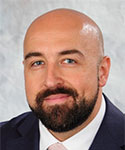 | Albert J. CampoAlbert J. Campo, CPA, MBA, is the president of AJC Accounting & Consulting Services. He is a member of the NJCPA and serves as a director of the Monmouth/Ocean Chapter. |
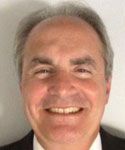 | Barry R. PalatnikDr. Barry R. Palatnik,Ed.D, CPA, MBA, is an associate professor of accounting at Stockton University. He is a member of the NJCPA and serves as treasurer for the Atlantic/Cape May Chapter. More content by Barry R. Palatnik: |
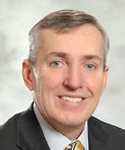 | Jerry MaginnisJerry Maginnis, CPA, is an executive in residence at Rowan University and author. Previously, he spent 36 years with KPMG in Philadelphia, serving as managing partner from 2006 through 2015. He is a member of the NJCPA and serves on the Strategic Planning Committee. |
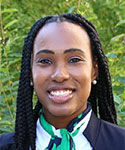 | Jessica E. McClainJessica E. McClain, CPA, CISA, PMP, CITP, CGFM, is the chief financial officer at Girl Scouts of Nation's Capital. More content by Jessica E. McClain: |
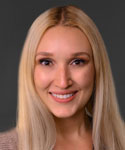 | Kristina KostovskiKristina Kostovski, CPA, is a senior accountant at Traphagen CPAs & Wealth Advisors. She is a member of the NJCPA and serves on the Student Programs & Scholarship Committee, the Emerging Leaders Interest Group, the State Taxation Interest Group and the Federal Taxation Interest Group. |
This article appeared in the Summer 2022 issue of New Jersey CPA magazine. Read the full issue.